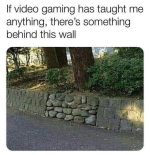ElectricBlue
Joined 10 Years Ago
- Joined
- May 10, 2014
- Posts
- 17,154
The furniture became necessary because she'd have fallen forward onto the floor (thus introducing "floor"), and he'd have been undignified, flat on his ass on the same "floor". She looks best with her breasts swaying and the long line of her back taut like a bow, and he's a lazy bastard who likes to slow stroke himself while he watches her turn towards him with the slow turning look that she has.That's an interesting idea, and a nifty exercise. I wonder if you could remove the dressing table and the chair, or at least refer to them only by implication, and achieve a truly empty space.
